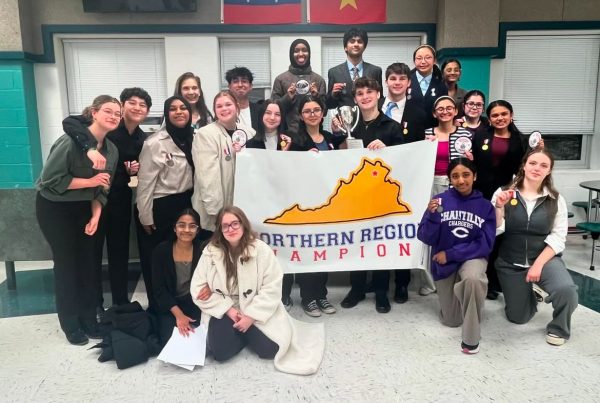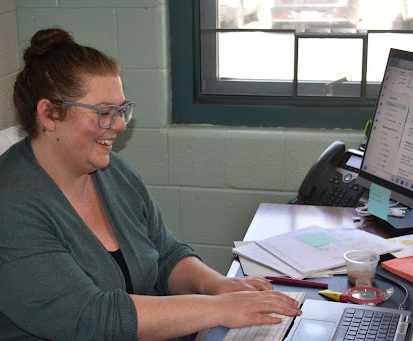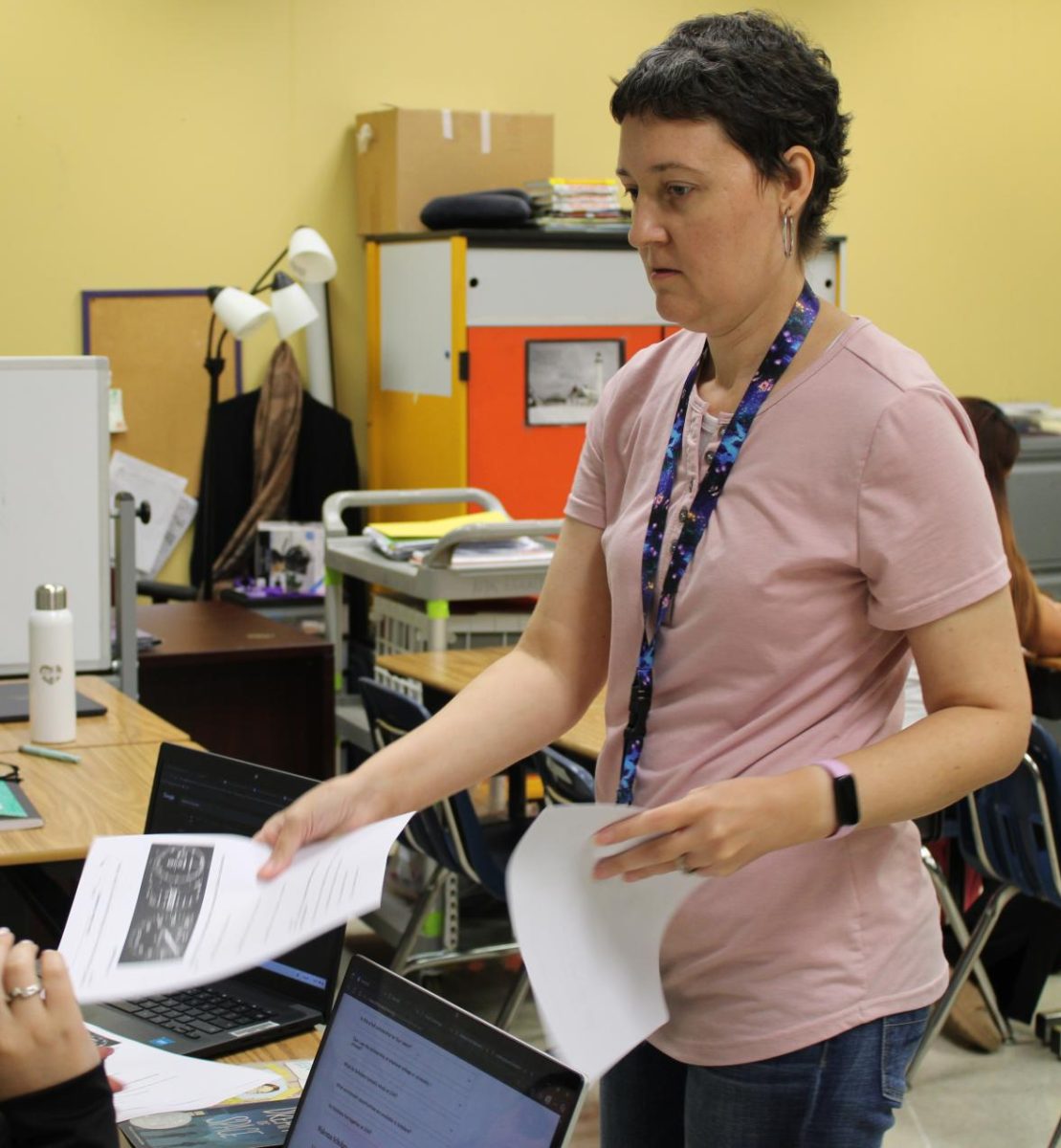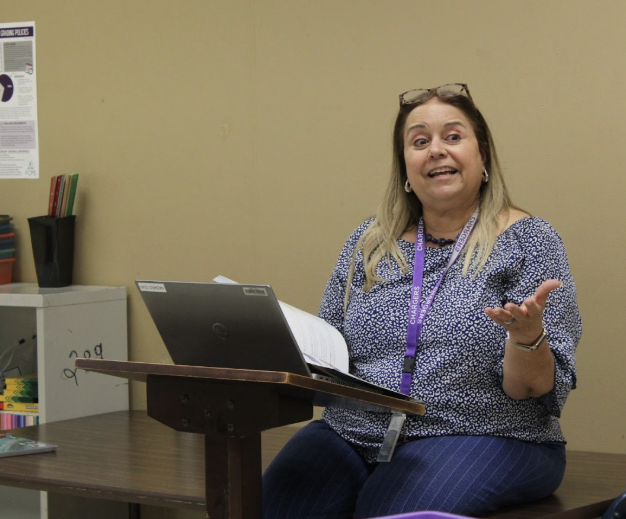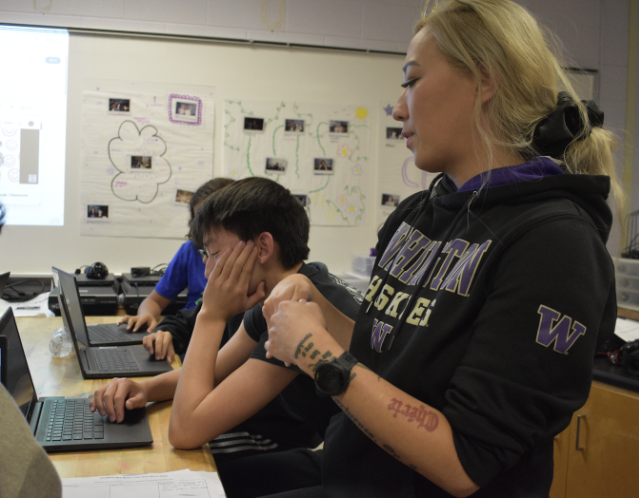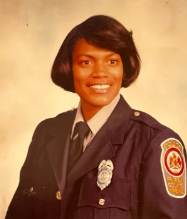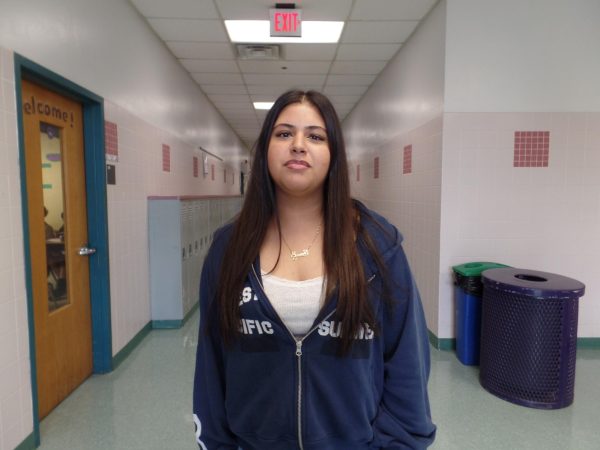Speech Team junior member Yasmin Engelen stands in a room full of students and judges staring at her, waiting for her next move, as she prepares to share her inner thoughts during one of her speeches in Dramatic Interpretation. For Engelen, the Speech Team is about telling a story and creating expressions but others have different experiences, such as Aayush Shivashankar who participates in the Debate Team and Speech Team.

For Debate Team, students speak in a serious and informative tone when in competitions. In Speech Team, students participate in many interpretive events, similar to theater or drama, and also participate in events that involve more serious tones. Some speech events may use humor to relay information as well.
“The Debate Team is more heavily oriented towards research and developing an argument for a specific resolution,” English teacher and Speech Team coach Barbara Clougherty said. “They need to explore both sides and understand both sides of that argument, whereas with speech [has] a lot more flexibility.”
Along with the different events, the preparation for rounds and speeches varies. In Debate Team, students research a particular topic for one to two months, having multiple topics to debate on throughout the year.
“I think the entire point of the Debate Team is to try and train debaters to be able to create cohesive arguments and be able to compete at a formal level that will allow people to compete and share ideas,” debate head captain senior Aayush Shivashankar said.
In Speech Team, they focus on one piece throughout the entire year and receive feedback on it, continuing to refine it, but this does not apply to those who are in exempt or impromptu events.
Students in speech can participate in two categories, public address events or interpretive events. Public address events involve a prepared speech written by the student answering a question, persuading others or sharing a belief. Extemporaneous and impromptu speeches fall under the public address event in speech. Interpretive events, on the other hand, focus on a student performing published material with some preparation.
Debate and speech both include events where they have to work fast or have time to prepare. Furthermore, debate students tend to do a lot of research as they have to understand both sides of an argument, and speech students in extemporaneous have to do more research as well.
“In speech, our creativity comes out in the voices with adding a lot of emotion where we need to and understanding when to speak loudly or quietly,” Engelen said.
According to Clougherty, the main goal of both teams is to help students find their voices and become confident in sharing information and developing arguments. The clubs help strengthen and develop students’ public speaking skills.
“I would say public speaking, communication and clinical thinking are all skills that you are able to develop while being in debate,” Shivashankar said. “You have to think on your feet and you have to be kind of a fast thinker.”
According to the University of Florida, 72-75% of people fear public speaking. Overall, while Speech and Debate Team have different preparation processes, tones and styles, students develop public speaking, critical thinking and research skills participating in these clubs according to the Stanford National Institute.
“One major skill I have developed in this club is dealing with stress and anxieties while speaking in front of others,” Engelen said. “This club has really helped me handle my nervousness while speaking to a crowd which has definitely translated over to my classes as I have had to do a presentation in almost every class I take.”
